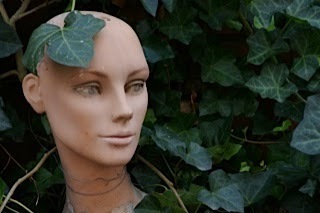crossing from relentlessly clever toward zealously humane (reflections on Rivka Galchen)
 This past weekend I read the first 100 and last 100 pages of a much-acclaimed YA novel that felt, as I later wrote to a dear friend, relentlessly clever. The boom bang gee whiz zip of it all. The personality identifiers that soon became that scratch in the vinyl of the song. The politically correct issues wedged into something nearly other worldly. This novel has one extremely fine sentence and immaculate image after the other; I understand where the applause is coming from. And yet I felt wearied as I tried to ride its waves. I wanted it to settle down, somehow. Ripen quietly for a moment or a scene. Cross the border from the unexpected image toward the unexpected truth.
This past weekend I read the first 100 and last 100 pages of a much-acclaimed YA novel that felt, as I later wrote to a dear friend, relentlessly clever. The boom bang gee whiz zip of it all. The personality identifiers that soon became that scratch in the vinyl of the song. The politically correct issues wedged into something nearly other worldly. This novel has one extremely fine sentence and immaculate image after the other; I understand where the applause is coming from. And yet I felt wearied as I tried to ride its waves. I wanted it to settle down, somehow. Ripen quietly for a moment or a scene. Cross the border from the unexpected image toward the unexpected truth. Early this morning, on the other hand, I finished reading American Innovations, a collection of short stories by Rivka Galchen, a writer well known and widely regarded for her astonishing forays into the absurd. Galchen frames her stories within the nearly recognizable. She tilts them off the screen. She bends and folds and breaks her landscapes and people until you're pretty sure, as her wide-eyed reader, that you've arrived at a surrealist museum.
Still, Galchen's tales alight from all-too-human insecurities, aloned-ness, confusions over purpose. Sure, there are streaming oddities and uncomfortable hilarities and the smack of white space at the end of it all—but Galchen is priming us for something bigger than the circus. She is making room, within the flurry, for the ascension of uncommon truth.
I'm quoting from the story "Once an Empire." Our lives-alone narrator has just returned from a movie. It's after midnight. She looks up toward her apartment where, strangely, but soon it hardly seems strange at all, her "stuff" is leaving her. The ironing board has walked off gently:
Next, with surprising nimbleness, my brown velveteen recliner climbed down, then passed by me in a stump-legged gallop. My wood-armed Dutch sofa shuffled graceful as a geisha. My desk chair seemed to think it had wheels, which it doesn't. A green-globed desk lamp went by. An ordinary plastic dustpan. A heavy skillet, scorched. My things. They were all heading east. With an enviable sense of purpose. An old set of Russian nesting dolls from my father, the ladder I used to reach my storage loft, a forgotten feather duster (blue), a pine cabinet with round hinges, two high kitchen stools I had painted, one of which had a yellow splatter I liked to run my fingers across.... "Stuff" is such a childish word. Sheets passed as if floral ghosts. My books rustled by like a military of ducks. My mother had never liked my books. She'd said they kept me from real life, by which I think she meant men, or money, or both. Always accusing things of precisely the crimes they haven't committed.
In other hands, this cleverness of image might have been enough — the Disneyesque escape of things from an apartment. But in Galchen's hands there is something deeper here — that "With an enviable purpose." That pause to comment on the word "Stuff." That interstitial bit about the mother, the clue about real life, that powerful "Always accusing things of precisely the crimes they haven't committed." Here, in the landscape of the strange, the strange is still background, while the human heart is foreground.
This (in addition to her wild imagination) is Galchen's special talent.




Published on January 13, 2015 07:37
No comments have been added yet.



